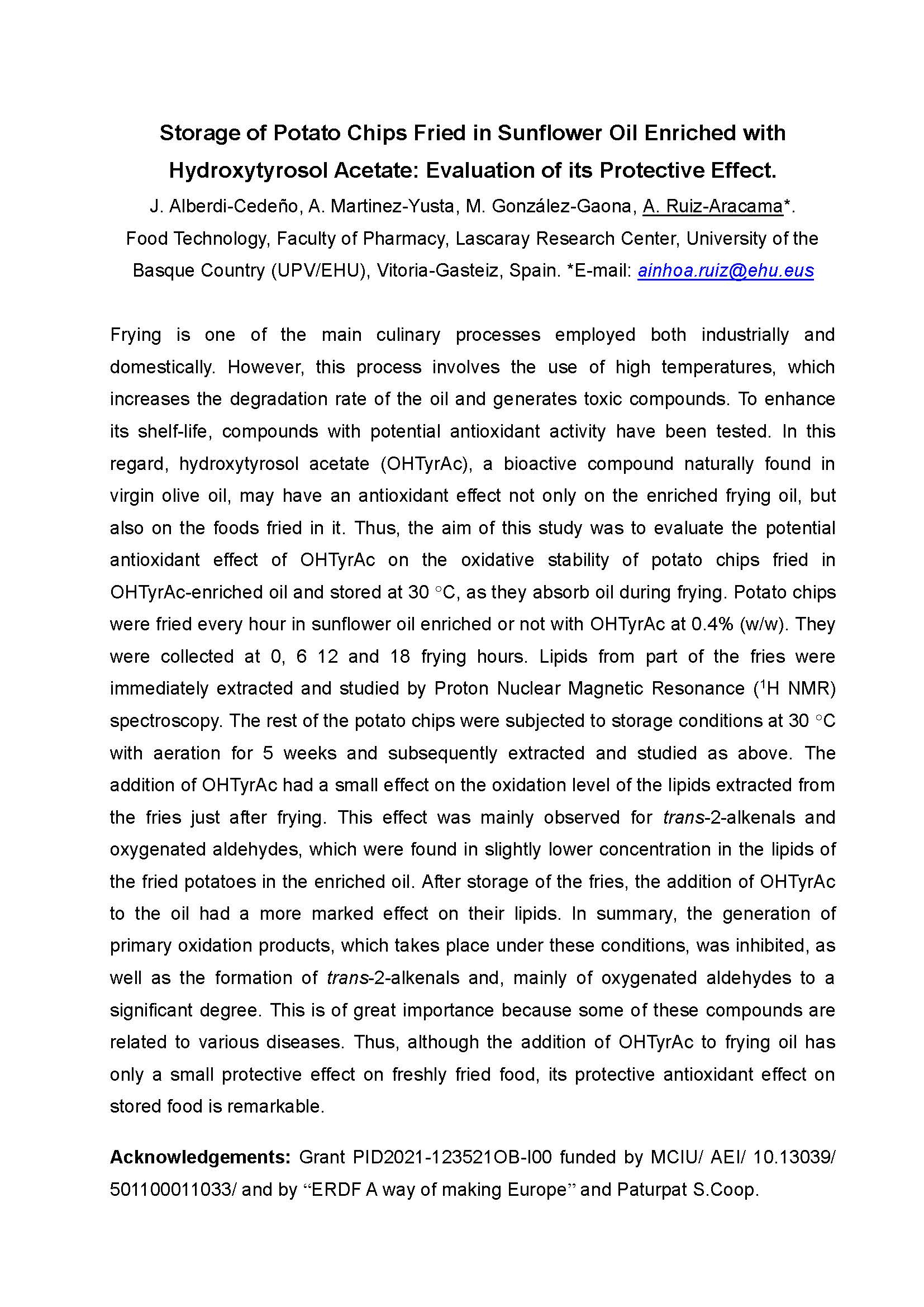Frying is one of the main culinary processes employed both industrially and domestically. However, this process involves the use of high temperatures, which increases the degradation rate of the oil and generates toxic compounds. To enhance its shelf-life, compounds with potential antioxidant activity have been tested. In this regard, hydroxytyrosol acetate (OHTyrAc), a bioactive compound naturally found in virgin olive oil, may have an antioxidant effect not only on the enriched frying oil, but also on the foods fried in it. Thus, the aim of this study was to evaluate the potential antioxidant effect of OHTyrAc on the oxidative stability of potato chips fried in OHTyrAc-enriched oil and stored at 30 °C, as they absorb oil during frying. Potato chips were fried every hour in sunflower oil enriched or not with OHTyrAc at 0.4% (w/w). They were collected at 0, 6 12 and 18 frying hours. Lipids from part of the fries were immediately extracted and studied by Proton Nuclear Magnetic Resonance (1H NMR) spectroscopy. The rest of the potato chips were subjected to storage conditions at 30 °C with aeration for 5 weeks and subsequently extracted and studied as above. The addition of OHTyrAc had a small effect on the oxidation level of the lipids extracted from the fries just after frying. This effect was mainly observed for trans-2-alkenals and oxygenated aldehydes, which were found in slightly lower concentration in the lipids of the fried potatoes in the enriched oil. After storage of the fries, the addition of OHTyrAc to the oil had a more marked effect on their lipids. In summary, the generation of primary oxidation products, which takes place under these conditions, was inhibited, as well as the formation of trans-2-alkenals and, mainly of oxygenated aldehydes to a significant degree. This is of great importance because some of these compounds are related to various diseases. Thus, although the addition of OHTyrAc to frying oil has only a small protective effect on freshly fried food, its protective antioxidant effect on stored food is remarkable.
Acknowledgements: Grant PID2021-123521OB-I00 funded by MCIU/ AEI/ 10.13039/ 501100011033/ and by “ERDF A way of making Europe” and Paturpat S.Coop.
